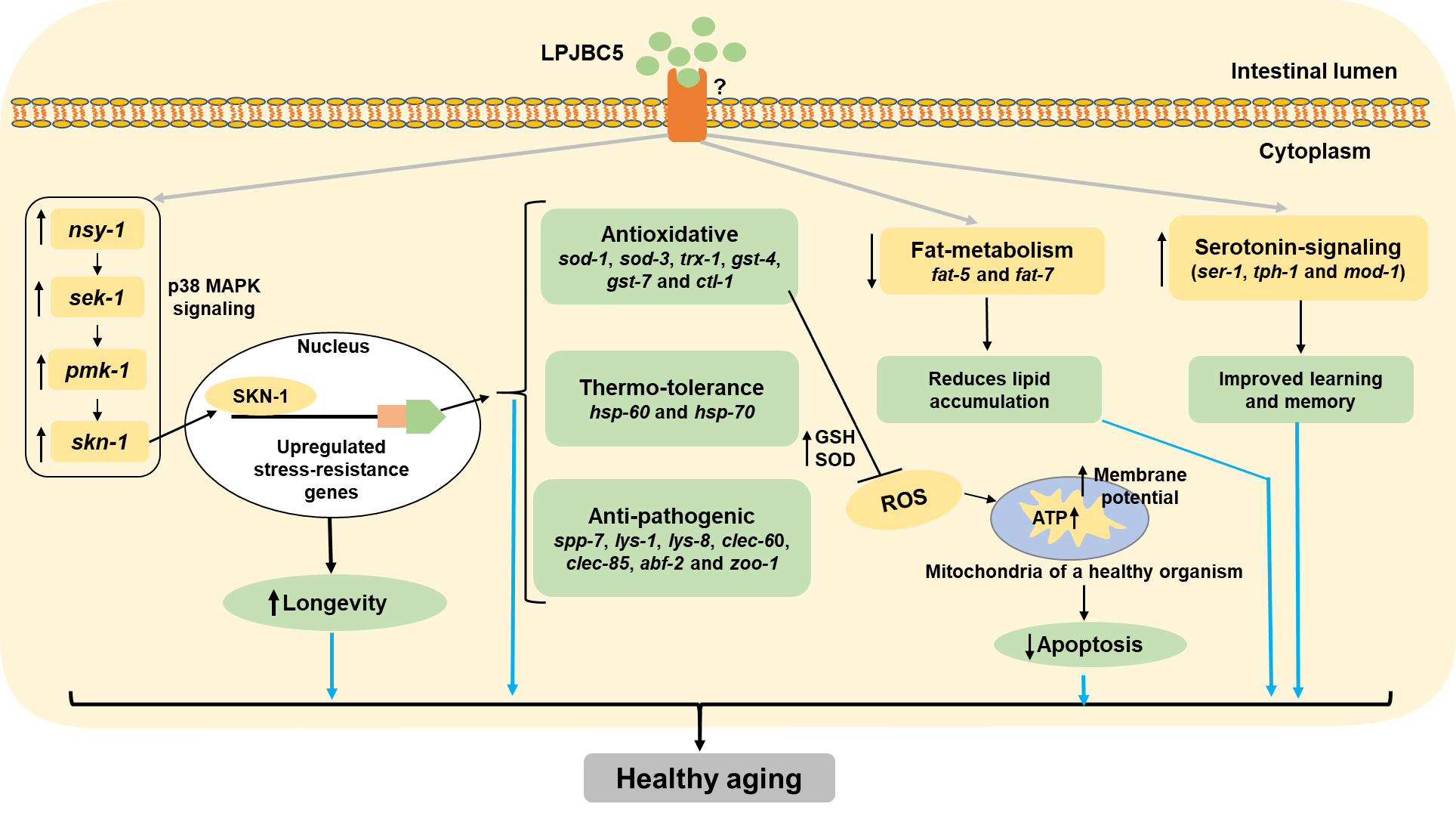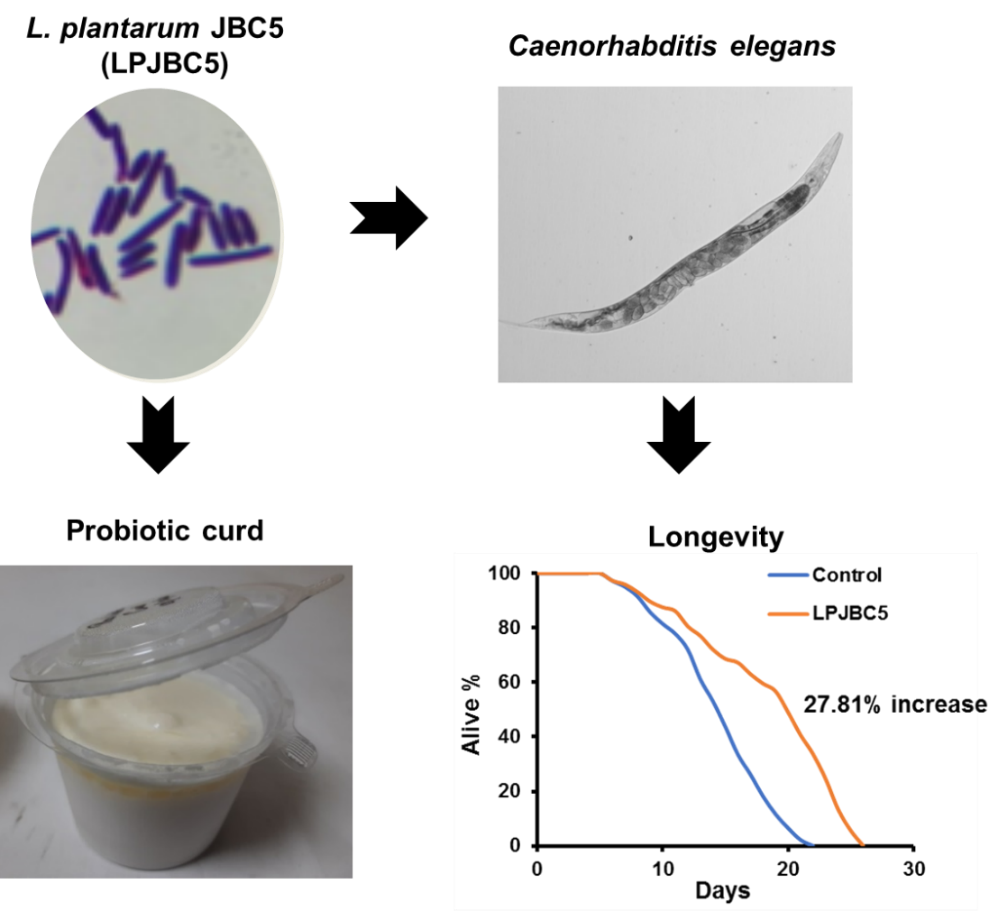A next-generation probiotic bacteria discovered in fermented food from the North East of India has been found to promote longevity and healthy aging. The probiotic or food prepared with it may delay the onset of age-associated diseases in humans, such as inflammation, decline in cognitive ability, and increased immunity in elderly people.
The recent advances in medical science have increased life expectancy and led to the rapid growth of the aging population. The United Nations predicts that one in every eleven people will be older than the age of 65 by 2050. This raises concerns about the health and medical costs of this aging population. Scientists are looking for natural and dietary solutions to maintain the health of this population.
A team of researchers at the Institute of Advanced Study in Science and Technology (IASST), an autonomous institute of the Department of Science and Technology (DST), conducted studies on thousands of microorganisms isolated from fermented food products of various ethnic groups of northeast India. One of the bacterium, Lactobacillus plantarum JBC5 (LPJBC5), isolated from curd and generally found in fermented milk and vegetable products, passed all the tests mandated by the Indian Council of Medical Research (ICMR) to qualify as probiotics. It showed health-promoting effects in a popular worm model, Caenorhabditis elegans, which is generally used for aging research. This probiotic bacterium caused a 27.81% increase in the lifespan of the model organism C. elegans through a gene called upregulating skinhead-1 (skn-1) activated via the conserved a cellular pathway against stress called p38 MAPK signalling cascade accompanied by the hallmarks of healthy aging.
It improved physical activity and reduced accumulation of aging pigment lipofuscin, activated transcription factor skn-1 gene, upregulated the expression of antioxidative, thermo-tolerant, and anti-pathogenic genes that conferred resistance against abiotic and biotic stresses such as oxidative, heat, and pathogenic infections. It also enhanced learning and memory through upregulation of genes involved in serotonin signaling (ser-1, mod-1, and tph-1), reduced fat accumulation by reducing the expression of genes encoding key substrates and enzymes of fat metabolism (i.e., fat-5 and fat-7), improved gut integrity through upregulating the expression of intestinal tight junction protein ZOO-1 and reduced the production of reactive oxygen species and improved the mitochondrial function. These effects induced the reduction of apoptosis and induced healthy aging in worms.

The research led by scientist Dr. Mojibur R. Khan, and Professor Ashis K. Mukherjee, in collaboration with Prof. M. C. Kalita of Gauhati University along with research scholar Mr. Arun Kumar and Ms. Tulsi Joishy at IASST, has been published in the journal, ‘Antioxidants’. Furthermore, the team developed a yoghurt using this next-generation probiotic strain to derive all health benefits, and a patent has been filed (Patent application no: 202231001501).
Publication link: https://doi.org/10.3390/antiox11020268































